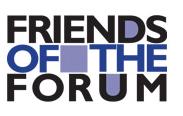| 2012 |
Głowno
Junior High and High School Complex


| 2012 |
Students from Junior High and High School Complex in Glowno know the local history very well. Their school is located at the site of a former ghetto. There are plaques commemorating Jews from Główno in the school hall, unveiled by Pola Hinenberg whose sister and mom died in the ghetto.
The ghetto in Głowno was established by the Germans in 1940. Over 5,500 Jews from the town and nearby areas were gathered in it. Later on, they were transported to the ghetto in Warsaw. Before, in the interwar period, Jews constituted approximately 59% of the town’s population. The Jewish commune thrived back then; there was a synagogue, a mikveh, a cemetery and a cheder. Political parties were active. Today, only the synagogue and the mikveh buildings remain after the community that had lived in Głowno since the 17th century. The building where the religious school and the seat of the commune was located, now houses the Town Hall. In the 70s, a factory was built at the site of the former cemetery, later it was turned into an artificial lake. Today, there is a playground and a residential area.
Thanks to the visit of Pola Hinenberg, the Holocaust survivor, high school students knew a lot about the Holocaust.
But the workshops organized by the School of Dialogue created a perfect opportunity for them to broaden their knowledge about the pre-war history of the town. During the workshops, they talked with Forum for Dialogue educators about Jewish culture and history. They also met Krzysztof Laszkiewicz, a town councilman and member of the Association of the Friends of Głowno. When the workshops ended, students continued searching for additional information about the history of Jews from Głowno in various sources. They reviewed the town’s monograph, went to the Regional Museum and talked to the town residents.
“Our younger peers do not know much about Jewish traditions, religion and culture. We want to guide them around our town in order to show them places and describe them. We want to prepare an exhibition for our the elderly. We want the Głowno residents to know how much we owe to Jews,” said Magda, a School of Dialogue participant, about the plans of the project. The walking tour mentioned by Magda was organized on June 13.
Second-year high school students invited their younger peers from the third-year junior high and the town representatives to follow the footsteps of Jews who once lived in Głowno.
The first stop was at the so-called Borówka, a part of town where the summer houses are located. Today, it is a wooden area with local path, but during the war it was the ghetto. Here, two students presented the reality of life under the German occupation. They talked about a pass to the ghetto, cold nights at summer villas, soup kitchens, assistance of the Joint Distribution Committee, and eventually deportation.The next stop of the tour was the place where the Jewish bottling factory had operated before the war. Here the tour participants could have a glass of water.
Then, they all went to the Regional Museum where fragments of matzevot from the Jewish cemetery in Głowno are preserved. After visiting the museum, the high school students showed their younger peers Jewish cottages typical of this region and a Jewish inn “Dorsz” being one of the oldest buildings in town. The walking tour then included the buildings of the synagogue, the mikveh, the religious school and the seat of Jewish commune. The last stop was at the Jewish cemetery, where today there is a playground and a residential area. During the tour, students showed photographs from the interwar period. The event was filmed by the students who later on edited it to include the tour, photos and reflections from the participants.
Our younger peers do not know much about Jewish traditions, religion and culture. We want to guide them around our town in order to show them places and describe them. We want to prepare an exhibition for our the elderly. We want the Głowno residents to know how much we owe to Jews.
Magdalena, workshops participant

School:
Junior High and High School Complex
Students:
2nd year high school students
Teacher:
Magdalena Łysio
Expert:
Krzysztof Laszkiewicz
Educators:
Katarzyna Czajkowska-Łukasiewicz, Marcin Mitzner
In appreciation to the Conference on Jewish Material Claims Against Germany (Claims Conference) for supporting this educational program. Through recovering the assets of the victims of the Holocaust, the Claims Conference enables organizations around the world to provide education about the Shoah and to preserve the memory of those who perished.

In appreciation to Friends of the Forum for supporting the School of Dialogue educational program.
